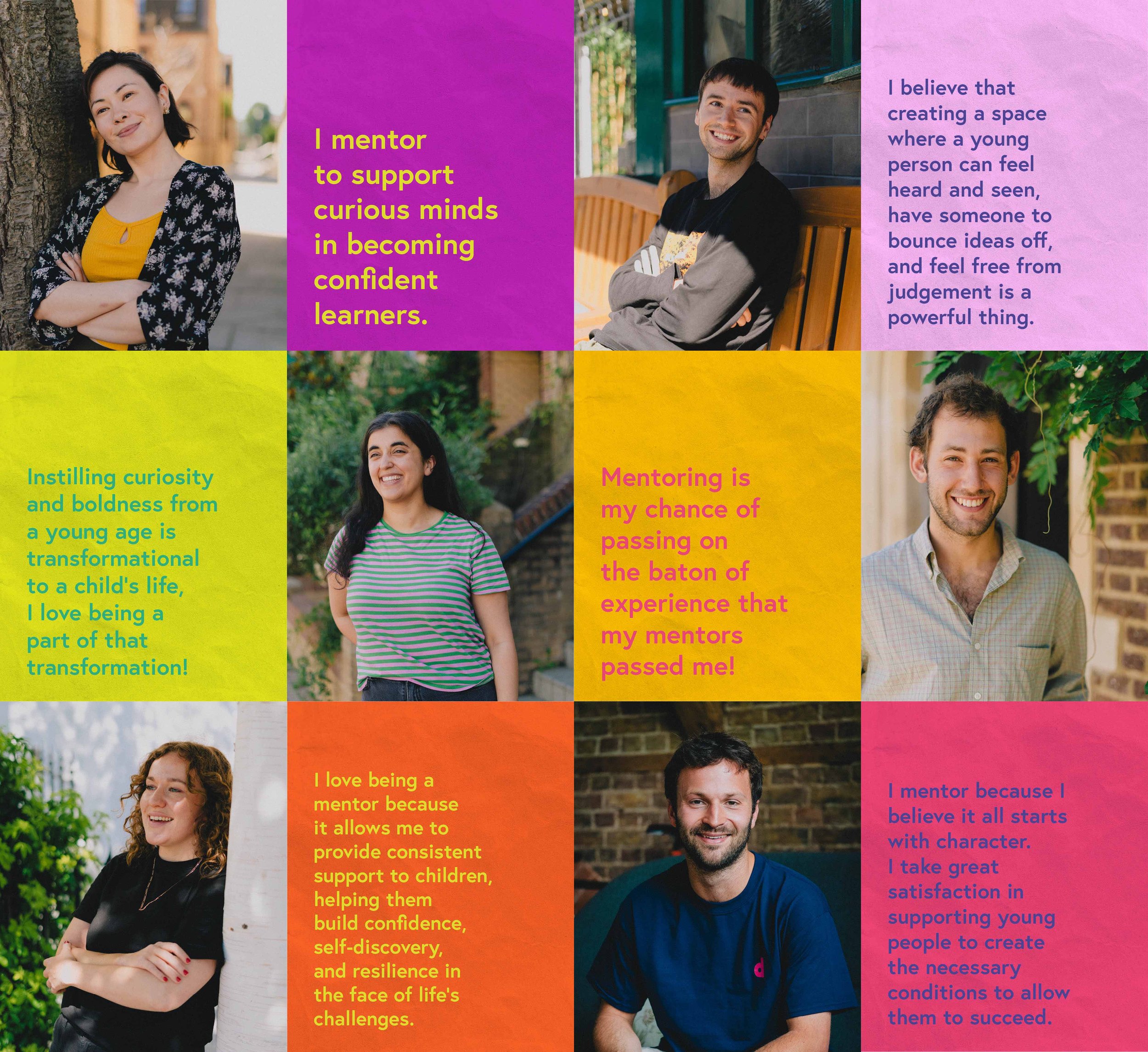
UCAS Journey
Mentoring to UCAS success
From course and university choice all the way to perfecting the personal statement, the UCAS Journey is a one-stop shop for your child’s transition to a UK university.
Why the UCAS Journey
The UCAS Journey helps students earn a place at their first choice of university.
-

Long-term relationship
Our work prioritises consistency and longevity with the same mentor. This means we can track impact and see real change. We don’t believe in ‘last minute’.
-

We cover all aspects of the UCAS process
The UCAS process can be fiddly. We mentor students through selection, application and assessment processes.
-

Our work with leading secondary schools
Our school partners help us better prepare students for university and ensure our work is up to date with university expectations.
-

Focus on developing future skills
Alongside academic work, our mentors are trained to develop a student’s essential skills, which are the foundation of long-term success.
How it works
Journey timeline
Step 1
University and degree choices
First up, our mentors help students evaluate different subject routes and what’s needed, pairing up ambitions with what universities offer.
Step 2
Perfecting the personal statement
Love it or hate it, the personal statement is the backbone of every UCAS application. Mentors help to refine your ideas into a winning piece of prose.
Oxbridge applicants
Interview preparation
For those applying to Oxbridge, mentors help students to read around their chosen subject and nail their interview.
Our mentors
Meet our UCAS experts
From the blog
UCAS articles & news
Frequently asked questions
-
UCAS stands for the Universities and Colleges Admissions Service. It is a central service based in the UK that manages applications for undergraduate courses at universities and colleges. UCAS acts as an intermediary between students and educational institutions, providing a streamlined application process for prospective students.
Through the UCAS system, students can apply for multiple courses at different institutions using a single application. UCAS collects and processes applications, coordinates communication between applicants and institutions, and facilitates the decision-making process.
When applying through UCAS, students are required to submit their academic qualifications, personal statement, and reference letters. UCAS then forwards the applications to the respective universities and colleges for consideration. Institutions review the applications and make offers based on the criteria they have established, such as academic achievements, personal statements, and sometimes interviews or admission tests.
-
Visit universities - try not to base on hearsay or league table ranking.
Decide the subject first and from that look at the institutions for that.
If you are looking at the league table ranking, don't focus broadly but on the individual subject(s) you're looking to apply to
Things to consider: student satisfaction, costs, campus vs city, close vs far away from home
Think about grades and back up - don't pick universities with the same offer grades in case you need a backup.
There are lots of choices about universities and subjects and where it leads - try to do research for yourself e.g., if I want a job at X, I need to go to X and study X
-
The UCAS personal statement serves as an opportunity for applicants to showcase their skills, experiences, and motivations to universities. It allows you to explain why you are interested in the chosen course of study, highlight relevant academic achievements, and demonstrate your suitability for the program.
The UCAS personal statement typically has a word limit of 4,000 characters or 47 lines, whichever comes first. It is important to carefully consider the content of your statement and structure it effectively within these limitations.
It's one personal statement so you need to make it work for all the subjects, courses, and universities that you're applying for
‘Show don’t tell’ - don’t say ‘I’m passionate about’ but indicate your passion through the depth of your example.
Universities want to see a passion for the subject - the extra mile.
Ensure the extra-curricular section is limited (3 lines max)
-
Students should start preparing for UCAS from the summer after Year 11 (GCSEs).
Use the long summer to visit universities (campus-based, city, countryside)
Work experience – it’s great to be exploring the subjects beyond A level
Different pathways – degree vs degree apprenticeship? You can apply through UCAS to universities and apprenticeships. This is really worth considering before.
-
Almost always we recommend a hybrid approach. The first session is wherever possible, in person, to establish a good rapport and thenceforth online to make scheduling easier.
-
We don’t expect you to want or need to change your mentor. Families are permitted one change if things aren’t work effectively.
-
Mentoring for the UCAS process prioritises long-term support, consistency of mentor and the relationship between mentor and mentee. Alongside this, our aim is to develop the student personally as well as academically.











